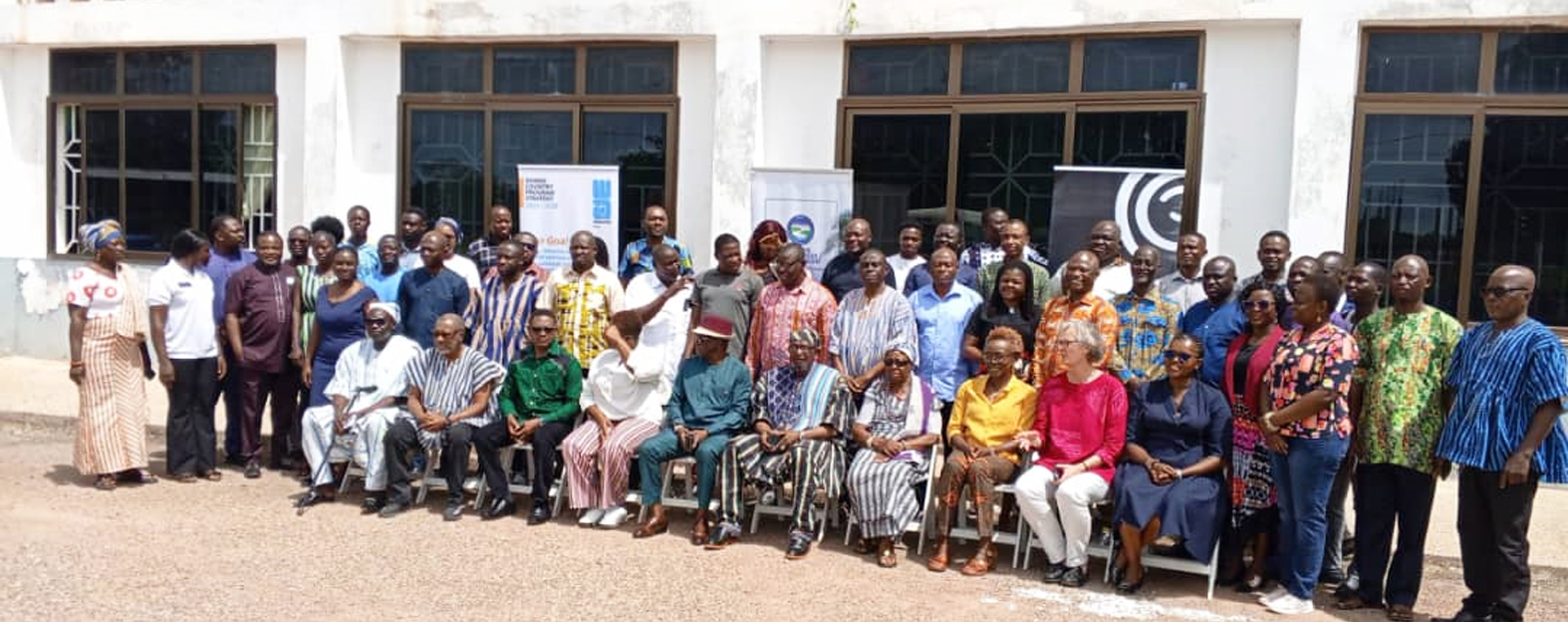
Many people will not easily recognise the name Klaus Martin Schwab. Many might never have even heard of him at all. However, many know of the World Economic Forum. The annual gathering at the end of January in the Swiss mountain resort of Davos is a staple among the who’s who of global economics, trade and finance.
Many are not aware that Klaus Schwab is the founder of this global gathering and only resigned as its Chairman early this year. The now 87-year-old German mechanical engineer and economist came up with the brilliant idea as far back as 1971.
His reason for setting up the Forum?
In a February 2025 statement, this was exactly what he said:
“Shareholder capitalism, which dominated the 20th century, asserts that the primary goal of a company is to maximise profits for its shareholders: the owners of the company. This model drove economic growth, but often overlooked broader social and environmental impacts. Stakeholder capitalism, by contrast, sees companies as part of a larger social fabric. It calls on businesses to consider the interests of all stakeholders – employees, customers, suppliers, communities and the environment – rather than just shareholders. This principle was the foundation of my decision to establish the World Economic Forum in 1971.”
Stakeholder capitalism. An interesting phrase which is gradually becoming the order of the day. In boardrooms across Silicon Valley and business schools throughout Europe, executives are scrambling to understand what it really means, what its advantages are and how they can adopt it successfully. Some have described it as adopting “purpose-driven business models.”
I find this whole concept interesting because right here on the continent of Africa, our forebears had been employing some form of this notion for generations. What the West is discovering as revolutionary, African business culture has always known: sustainable success comes from interconnectedness, not isolation.
The proof is in the fact that almost every language on this continent has a word that carries this same understanding of a universal bond of sharing that connects all humanity. However, the word that best describes this approach to life in general and business in particular is derived from the Bantu languages spoken from West Africa to Central Africa, Southeast Africa, and into Southern Africa. That word is UBUNTU!
Ubuntu—encapsulated in the phrase “I am because we are”—represents far more than feel-good rhetoric. Research increasingly demonstrates that businesses built on Ubuntu principles outperform their purely profit-driven competitors in customer loyalty, employee retention, and long-term sustainability. For entrepreneurs in this country and on the continent, this is not theoretical—it is practical wisdom that creates measurable competitive advantages in both local and global markets.
Truly, Africa has a lot to give to the world.
“The roots of humanity come from Africa, and therefore African wisdom will help us to understand people and their organisations. African people’s inclusiveness, ability to consult everyone and deep respect for the views of others form part of what African wisdom gives us.”
This statement is attributed to Dr Marius Ungerer, a Professor in Strategic Management and Management Consulting at the University of Stellenbosch Business School (USB).
Research behind Ubuntu Business Success
A November 2014 study involving 246 customers of the South African mobile service provider Vodacom found that most consumers believe that companies are morally obligated to be socially responsible. Furthermore, customers view organisations as being part of society and are therefore obligated to contribute as humans would.
In view of this, the study found that when organisations practised Ubuntu through their corporate social responsibility activities, brand image and brand trust increased, and this ultimately led to an increase in customer loyalty. The article was titled, “Corporate Social Responsibility as a Practicality of Ubuntu to Build Brand Loyalty: A Case of Mobile Telecommunication in South Africa”. It was published in the Mediterranean Journal of Social Sciences.
A chapter in a September 2024-released book titled, Indigenous Entrepreneurship in Sub-Saharan Africa, argued that the co-creation of future benefits with partners and stakeholders is a means to provide synergistic opportunities. This directly challenges the Western assumption that competition drives innovation better than cooperation. That particular chapter is titled, “Ubuntu Facilitates Open Innovation for Entrepreneurs: Synergising through an African Perspective.”
Ubuntu’s Competitive Advantages in the Ghanaian Market
Ghana’s business environment uniquely amplifies Ubuntu’s advantages. Nnoboa is a well-known concept among farming communities all over this country. In a market where personal relationships drive commerce and word-of-mouth remains the most powerful marketing tool, businesses built on genuine community connections naturally thrive.
Consider the traditional Ghanaian market trader who has served the same community for decades. She does not merely sell goods—she knows her customers’ families, remembers their preferences, celebrates their joys, and supports them through difficulties. In fact, it is not uncommon to see customers attending the funerals, outdooring and wedding ceremonies of those they buy from and vice versa. This is not sentimentality; it is strategic relationship capital that no advertising budget can replicate. When a new competitor opens nearby with lower prices, her customers remain loyal because the relationship transcends transactions.
Modern enterprises applying these same principles at scale are discovering powerful competitive moats. Businesses that are highly community-engaged tend to have average customer lifetime values higher than transactional competitors. The customer acquisition costs of businesses that practice Ubuntu in their dealings also tend to be lower, driven primarily by referrals rather than paid advertising.
The Trust Economy Advantage
In markets where institutional trust remains developing, interpersonal trust becomes the primary business currency. Ubuntu principles naturally generate this trust through demonstrated commitment to mutual benefit rather than unilateral profit extraction. This trust advantage compounds over time. Trust built through Ubuntu practice creates customer forgiveness for mistakes and patience during service disruptions—competitive advantages impossible to purchase.
Ubuntu Principles as Innovation Accelerators
Counter-intuitively, Ubuntu’s emphasis on community consensus often accelerates rather than hinders innovation. When customers feel genuinely connected to a business’s success, they become active co-creators rather than passive consumers.
Mobile money services like MTN’s MoMo succeeded partly through Ubuntu-aligned design. Rather than imposing a Western financial product on African markets, developers engaged communities in co-creating solutions that addressed real needs within existing social structures. This collaborative approach, rooted in Ubuntu’s “we together” philosophy, led to innovations Western designers missed—like money transfers structured around extended family obligations rather than nuclear family assumptions.
The Global Marketplace Advantage
As global consumers increasingly prioritise corporate social responsibility and authentic purpose, African businesses built on Ubuntu principles find themselves unexpectedly advantaged in international markets. What foreign competitors struggle to manufacture through CSR departments, Ubuntu-based businesses practice naturally. African exporters who authentically communicate their Ubuntu-rooted business practices connect with these consumers more effectively than Western corporations attempting to retrofit purpose onto profit-driven models.
Fair trade chocolate companies from this continent exemplify this advantage. When cocoa producers organised around Ubuntu principles—ensuring farmer welfare, environmental stewardship, and community development—they commanded premium prices in European markets not through marketing spin but through authentic practice. Consumers recognised and rewarded genuine commitment to communal wellbeing.
Implementation: From Philosophy to Practice
Ubuntu’s business advantages materialise only through authentic implementation, not superficial adoption. African entrepreneurs successfully applying Ubuntu principles typically demonstrate several concrete practices:
Customer relationships as community connections. Rather than viewing customers as transaction sources, these businesses treat them as community members whose success contributes to collective prosperity. Customer service becomes community service.
Transparent value sharing. Ubuntu-aligned businesses openly demonstrate how customer payments benefit broader communities—through local employment, supplier relationships, community development initiatives, or environmental stewardship.
Long-term relationship orientation. Instead of optimising individual transactions, these businesses invest in multi-generational customer relationships, accepting short-term costs for long-term community benefit.
Collaborative problem-solving. Customers become partners in addressing challenges and creating solutions, transforming potential conflicts into strengthened relationships.
The Path Forward

As global business culture shifts toward stakeholder capitalism and purpose-driven models, entrepreneurs who practice Ubuntu principles will not be playing catch-up—they will be leading. The competitive advantages Ubuntu creates—superior customer loyalty, lower acquisition costs, innovation acceleration, trust economy benefits, and authentic global appeal—will position Africa’s customer-centric entrepreneurs for both local and international success.
The question facing Ghanaian and African businesses is not whether to adopt Ubuntu principles but whether to recognise and systematically leverage the competitive weapon they have possessed all along. In a business world frantically searching for sustainable models beyond pure profit maximisation, Ubuntu-based entrepreneurs already know the answer: I am because we are. Your customers’ success is your success. Everyone wins together.
This is not just philosophy. It is strategy. It is competitive advantage. It is Africa’s secret business weapon—and it is time to wield it deliberately.

The post Service & Experience with J. N. Halm: Ubuntu: Ancient African philosophy and customer-centric entrepreneurship appeared first on The Business & Financial Times.
Read Full Story




















Facebook
Twitter
Pinterest
Instagram
Google+
YouTube
LinkedIn
RSS